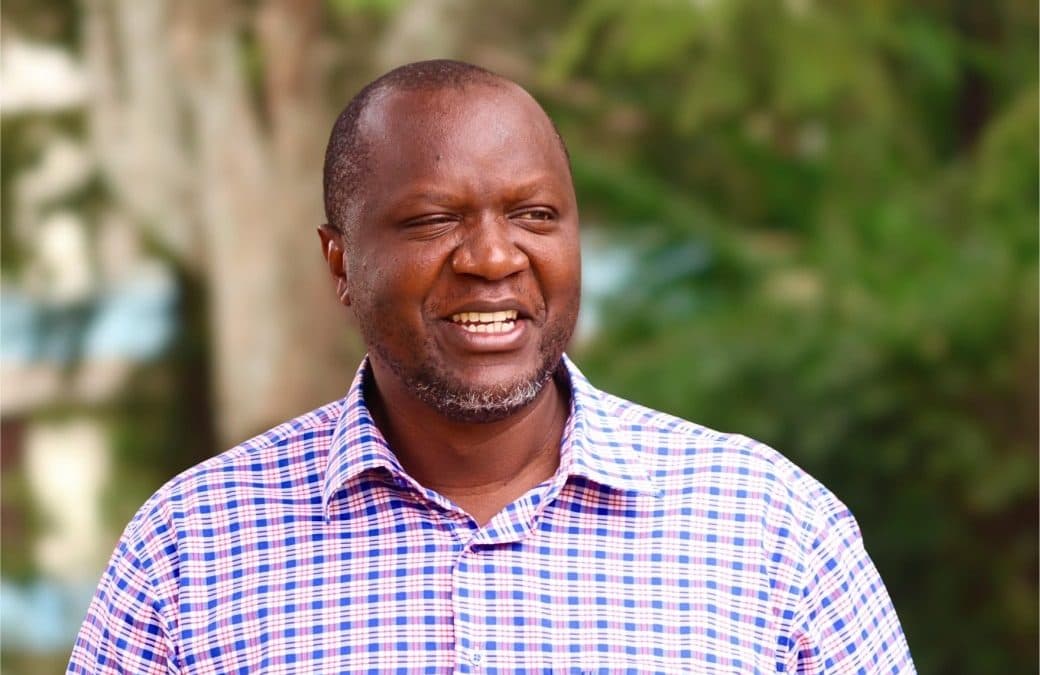We're loading the full news article for you. This includes the article content, images, author information, and related articles.
Lawyer and political analyst Willis Otieno eulogised the late Raila Amolo Odinga as a leader whose impact on Kenya's democratic journey extended far beyond political office, shaping the nation's understanding of freedom for over three decades.

Speaking during a televised memorial discussion on Thursday, October 16, 2025, lawyer and political analyst Willis Otieno paid a heartfelt tribute to the late Raila Amolo Odinga, describing him as a leader whose influence surpassed the confines of politics or the presidency. Otieno echoed a phrase often used by Odinga himself when honouring great leaders: “The king has died, long live the king.”
Otieno highlighted Odinga's rare stature, characterising him as a figure witnessed by only a few generations. For more than three decades, Odinga was instrumental in shaping Kenya's political direction and defining how citizens understood their freedoms. “For the last 30 years, Raila Odinga has been what I call the definer of how the Kenyan people organise themselves. Within him lies a person who drew inspiration and shaped the history of our nation,” Otieno stated.
Odinga is widely credited for his central role in Kenya’s 'Second Liberation,' the struggle for multiparty democracy. The political freedoms Kenyans enjoy today are deeply linked to his sacrifices. “We enjoy our political freedoms today largely because of the efforts of Raila Odinga. If I were to take all those who fought for our second liberation, the ultimate epitome of that struggle and the personality behind it would be Raila Odinga,” Otieno asserted.
His political life was marked by immense courage and personal cost. Odinga was detained for a cumulative nine years during the fight for multiparty democracy, enduring harsh conditions and alleged torture, yet he remained steadfast in his conviction for change. He was first imprisoned in 1982 following an attempted coup against then-President Daniel arap Moi's government, accused of treason, a charge later dropped. His activism led to multiple arrests and periods of detention without trial, solidifying his reputation as a symbol of resistance.
Born on January 7, 1945, in Maseno, Kisumu County, Raila Amolo Odinga was the son of Kenya's first Vice President, Jaramogi Oginga Odinga. His political career, spanning over five decades, saw him serve as Prime Minister from 2008 to 2013 in a Grand Coalition Government formed after the disputed 2007 elections. He also served as the Member of Parliament for Lang'ata Constituency from 1992 to 2013.
Despite five unsuccessful presidential bids between 1997 and 2022, Odinga remained a dominant and influential force in Kenyan politics. His ability to mobilise crowds and inspire loyalty across ethnic lines made him a consistent fixture in national life. Even without holding the presidency, he often set the national agenda, defined debates, and pushed for reforms that others later adopted.
Odinga's influence extended beyond Kenya's borders. He was a dedicated pan-Africanist, championing African unity, self-reliance, and integration. From 2018 to 2023, he served as the African Union High Representative for Infrastructure Development, advocating for regional integration and transport corridors across the continent. He also participated in diplomatic efforts across East Africa, mediating conflicts and engaging in initiatives under the African Union.
Odinga's death leaves a significant void in Kenya's political opposition ahead of the 2027 elections. The question of who will succeed him as the leader of the Orange Democratic Movement (ODM) and the broader opposition remains. Analysts suggest that the absence of Odinga could reshape Kenya's political landscape, potentially leading to new alliances and succession battles.
The political landscape in Kenya is expected to undergo significant shifts following Odinga's demise. Attention will be on the Orange Democratic Movement's leadership succession and how other opposition figures position themselves in the coming months. The impact on the 2027 general elections will be closely watched as new political dynamics emerge.
Keep the conversation in one place—threads here stay linked to the story and in the forums.
Sign in to start a discussion
Start a conversation about this story and keep it linked here.
Other hot threads
E-sports and Gaming Community in Kenya
Active 9 months ago
The Role of Technology in Modern Agriculture (AgriTech)
Active 9 months ago
Popular Recreational Activities Across Counties
Active 9 months ago
Investing in Youth Sports Development Programs
Active 9 months ago
Key figures and persons of interest featured in this article